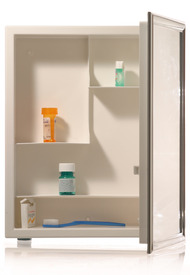Dr. Weeks’ Comment: Ginger, not the lovely Gilligan’s Island version, but the gnarled, mandrake shaped root which is prized but most cultures connected with the earth, was my best friend 13 years ago when I sailed in the Vic-Maui race from Victoria British Columbia to the faire isle of Maui. As crew and doc, I cared for those poor souls aflicted with sea sickness and after they failed on their cherished anti-nausea remedies, I sliced a dime sized piece of thi spotent herb which, upon chewing like gum, relieved them all of the green scourge. And on we sailed in delight to Hawaii. Ginger out performed the pharmaceutical drugs in the treatment of sea-sickness, was safer (no drowsiness) and cheaper… We would not have minded the company of the other Ginger but that is another approach to healing.
SOURCE: the New York Times
The Alternative Medicine Cabinet: Ginger
By Anahad O’ConnorNew York Times “Really?” columnist Anahad O’Connor explores the claims and the science behind various alternative remedies that you may want to consider for your family medicine cabinet.
 Tony Cenicola/The New York Times What alternative remedies belong in your home medicine cabinet?
Tony Cenicola/The New York Times What alternative remedies belong in your home medicine cabinet?
The Remedy: Ginger
The Claim: It cures nausea.
The Science: Ginger has long been recommended as a remedy for everything from arthritis to yeast infections, but no condition has been studied more in connection with ginger than nausea. Over the years, scientists have found in a variety of studies that it eases nausea and vomiting stemming from sea sickness, morning sickness and chemotherapy.
The Alternative Medicine Cabinet
Investigating the claims of natural remedies.
Precisely how ginger works is not known, but scientists believe that one of its active compounds, 6-gingerol, helps relax gastrointestinal muscles. Most studies suggest that all it takes is about half a gram to one gram to be effective. Patients can find ginger powder in capsule form or just shave off a few pieces from a fresh root and eat it fresh or mix it in water and drink it.
The Risks: Although generally safe, ginger can cause allergic rashes, heartburn and abdominal distress in some people. It might also exacerbate ulcers and gallstones.

